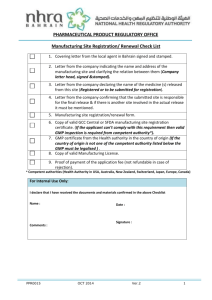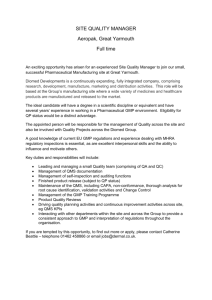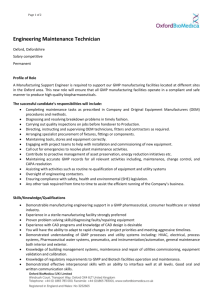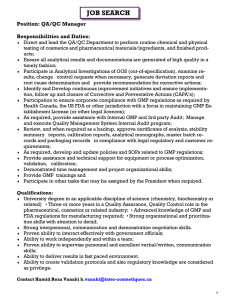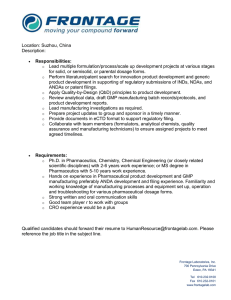GO2 Product Instruction - Sure-Lok
advertisement
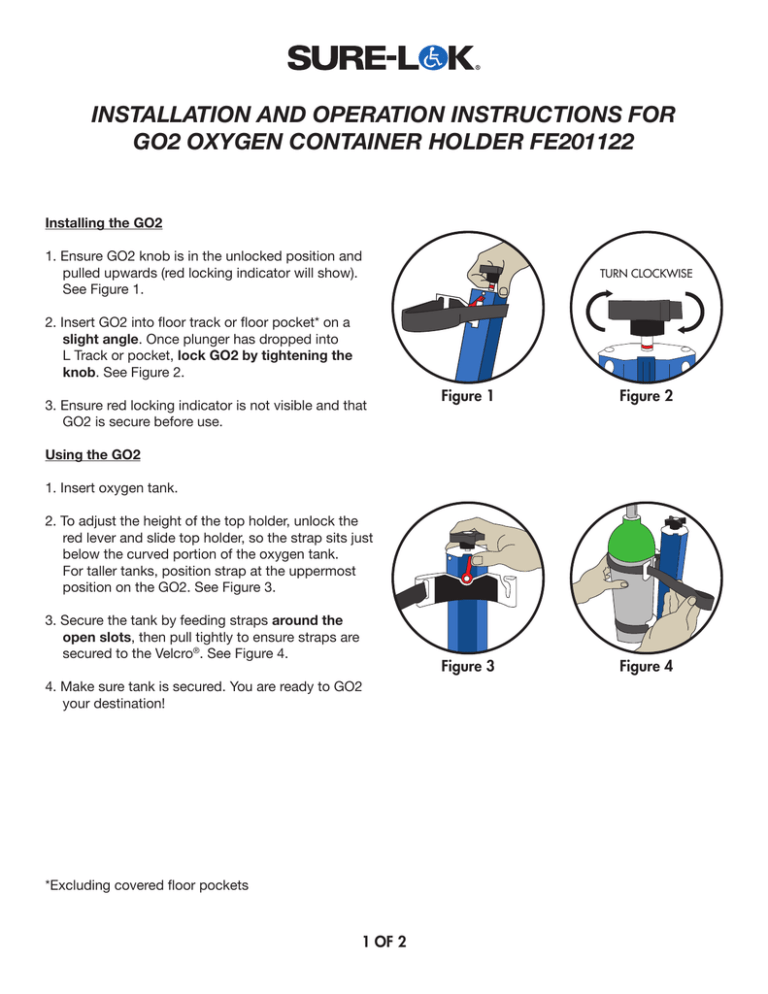
INSTALLATION AND OPERATION INSTRUCTIONS FOR GO2 OXYGEN CONTAINER HOLDER FE201122 Installing the GO2 1. Ensure GO2 knob is in the unlocked position and pulled upwards (red locking indicator will show). See Figure 1. TURN CLOCKWISE 2. Insert GO2 into floor track or floor pocket* on a slight angle. Once plunger has dropped into L Track or pocket, lock GO2 by tightening the knob. See Figure 2. 3. Ensure red locking indicator is not visible and that GO2 is secure before use. Figure 1 Figure 2 Figure 3 Figure 4 Using the GO2 1. Insert oxygen tank. 2. To adjust the height of the top holder, unlock the red lever and slide top holder, so the strap sits just below the curved portion of the oxygen tank. For taller tanks, position strap at the uppermost position on the GO2. See Figure 3. 3. Secure the tank by feeding straps around the open slots, then pull tightly to ensure straps are secured to the Velcro®. See Figure 4. 4. Make sure tank is secured. You are ready to GO2 your destination! *Excluding covered floor pockets 1 OF 2 Safety Information Keep these instructions and safety information in the vehicle at all times and refer to them regarding proper GO2 Oxygen Holder operation. Install in an upright position, into existing L Track or pocket in the vehicle floor. Ensure the GO2 does not obstruct aisles or access to exits. Any deviation from Sure-Lok’s recommendations regarding configuration, installation and operation shall be the responsibility of the installer. Only trained professionals should transport oxygen. Be sure to follow the manufacturer’s recommendations and follow their safety warnings. The user should be completely familiar with the use of the GO2 Oxygen Holder. GO2 accommodates O2 cylinders from size M2 to E as well as AZ to D. Inspect the GO2 prior to each use. Sure-Lok does not recommend making alterations of, or substitutions to, any parts or components of the GO2. The vehicle floor where the GO2 anchorages are attached shall have equal or greater strength than the system being installed. Any GO2 units which are suspected to have been in use during an impact from which the vehicle must be towed should be replaced. Environmental conditions such as dirt, mud, oil, sand, solvents, grease, saltwater or excessive sunlight, will reduce the service life and proper functioning of the system. Prevent contamination of webbing from chemicals, especially battery acid. Strap and belt webbing may be cleaned with mild soap and water. Rinse fully and dry completely. Ensure that the specific application is in compliance with local, state and federal regulations. Note: Refer to the U.S. Department of Transportation Pipeline and Hazardous Materials Safety Administration “Guidance for the Safe Transportation of Medical Oxygen for Personal Use on Buses and Trains” for additional information regarding precautions to assure that medical oxygen being transported for passengers’ personal use is handled and transported safely. This information is not all inclusive and will not cover or represent every installation. For further information contact Sure-Lok International 2501 Baglyos Circle Bethlehem, PA 18020-8027 Phone: 610-814-0300 Fax: 610-814-0644 Email: orders@sure-lok.com www.sure-lok.com/GO2 Q’Straint United Kingdom 72-76 John Wilson Business Park Whitstable, Kent, CT5 3QT Phone: +44 (0)1227 773035 Fax: +44 (0)1227 770035 Email: info@qstraint.co.uk www.qstraint.com Copyright 2012 Sure-Lok. Specifications subject to change without notice. 2 OF 2 SSP325 Rev. 12/12
